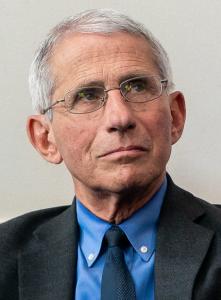 I doubt few would disagree that we live in an age of media free for all. I do not mean by that that media is free for all, since it plainly is not; someone must pay for it, and they do with copious amounts of cash. I mean “free-for-all” in the wrestling sense; it is a battle royal, a slugfest of ideas, a veritable clash of titans and pygmies as Twitter, Facebook, Instagram, among others, vie for billions of human eyeballs and ear holes. And what is to be found on these sites is nothing less than valuable insights mixed with idiotic claims of so-called experts who cry out from every conceivable location to broadcast their wares to any whose attention they can capture. I fear that idiocy too often wins the awards for most-watched memes or articles or videos.
I doubt few would disagree that we live in an age of media free for all. I do not mean by that that media is free for all, since it plainly is not; someone must pay for it, and they do with copious amounts of cash. I mean “free-for-all” in the wrestling sense; it is a battle royal, a slugfest of ideas, a veritable clash of titans and pygmies as Twitter, Facebook, Instagram, among others, vie for billions of human eyeballs and ear holes. And what is to be found on these sites is nothing less than valuable insights mixed with idiotic claims of so-called experts who cry out from every conceivable location to broadcast their wares to any whose attention they can capture. I fear that idiocy too often wins the awards for most-watched memes or articles or videos.
This week (July 27-31) perhaps the greatest and most ridiculous article had to do with a medical doctor of Nigerian origin, now living in Houston ,TX, who loudly announced that the widely disproven malarial drug, hydroxycloriquine, was in fact a “cure” for the virus, COVID-19, and that she had so treated over 350 patients who had been freed from the virus. Unfortunately, she did not name these people, nor give access to any of them for confirmation of her claims, but she spoke loudly and clearly that she was right, and any who disagreed with her were dangerously in error, and were consigning countless Americans to an unnecessary death. Of course, this same physician, Immanuel by name, also said that many female gynecological problems were the result of demonic activity and that the Coronavirus itself was perhaps the result of alien DNA infused into the human population. One might think that such announcements might have made her medical advice less than trustworthy, but think again; President Trump in fact re-tweeted her claims to his some 80,000,000 followers, attempting to affirm his earlier support of that malarial drug for use against COVID-19. There remains precisely zero evidence that hydroxychloroquine has any positive effect on the virus, and in fact has shown rather painfully negative reactions in some patients who have taken it.
Just how have we come to this terrible impasse concerning readily available accurate and inaccurate knowledge competing for our attention? I can easily remember some decades ago when the claims of Dr. Immanuel would have had exactly no credibility whatever among us, because we trusted the genuine information from respected and serious scientists, and would easily dismiss foolishness when we heard it. The difference, of course, is that Dr. Immanuel now has a very large electronic megaphone indeed, and can broadcast her foolishness willy-nilly around the globe, aided by gullible ordinary viewers and equally gullible presidents alike, who would rather shill for reelection than take seriously the work of actual and trusted experts. It is not Mr. Trump who has alone made this literally incredible absurdity available, but he has surely played his part in spreading the manure around.
And that brings me, perhaps surprisingly to Martin Luther, the instigator of the Protestant Reformation in Europe slightly more than 500 years ago. It was Luther, that heroic figure of protest, who set us on the course to the place in which we find ourselves today. When the great reformer fulminated against the Catholic Church as the source of most of the world’s evils in the 16th century, he made it plain that many of the doctrines of the church—purgatory, priestly power, the necessity of the Mass, among others—were human creations that got in the way of the simple relationship between the believer and her God. No one needed a priest or the Roman curia or the Pope himself, to tell her what to believe and how to act. Indeed, the Bible in its plain meaning, when read by “every ploughman and cobbler,” would yield all anyone needed to know about how to be a child of God. Hence, Luther translated the Bible into the German that his countrymen and women (at least those few women who had learned to read) could read the book for themselves. And with that act, the cat of interpretation was released from the bag. Pandora’s interpretive box was opened, and the world would never be the same. What happened in reality was that one cobbler’s view was unlike another’s and was in turn unlike the ploughman’s. In England, Henry VIII read Leviticus in a certain way so as to say that his first, rather long marriage to Queen Katherine, was in fact invalid, enabling him to marry Queen Anne, searching for that male heir he so craved. The English Reformation was based squarely on one reading of certain biblical verses, readings made possible by Luther’s freeing of the authority of interpretation from those experts who had made it their lives to tell others how to read the text.
I would certainly not argue that Luther’s extraordinary opening up of the interpretive world was wrong; far from it. I, as a progressive Christian, have gained near complete freedom to read the Bible as I have seen fit to read it over my 50-year scholarly career, a freedom I have relished and supported in others. However, that freedom has also led to the place where we now find ourselves, namely in the land of “my reading is as good as your reading.” This sometimes is expressed as, “My feelings about the world are just as valid as yours; you are no smarter or more trusted than I am.” And here is the problem that has led us to a time when Dr. Immanuel’s peculiar ideas about medicine are seen by many as equally valid as the ideas expressed by Dr. Fauci, the 36-year leader of the National Institute of Allergies and Infectious Diseases, and President Trump’s lead scientist for the attempts to control the COVID-19 virus. It appears to me that any credible evaluation of the two doctors’ experiences and credentials would suggest that Fauci should be trusted far more than Immanuel. However, in our world, the demon- believing Immanuel carries many with her to the detriment and even disparagement of Dr. Fauci.
This fact, I would judge, is post-modernism run amok. I spent 36 years in the academic world where post-modernism was a growing movement among those of us who used our minds for a living. The older modernist claims for a metanarrative, that is a universally accepted group of ideas and texts that all looked to for norms for belief and practice. It soon became clearer that with the entry of female scholars and of scholars of color the “dead white male” origins of these texts and ideas needed serious challenge. The recognized canon must be expanded, and that process is ongoing and necessary. But, as the notion of the expanded canon entered into the common life of the nation, trust in all experts and all traditional notions of authority began to erode. The lies of Vietnam and Watergate, the attempted hegemony of a “Moral Majority,” among many other societal movements led to the complex realities of our time, indeed to the multiple “truths” claimed by many on every side of the deep divides among the factions present. And here is the source of the media free-for-all we now witness and participate in today.
What are the answers to this significant dilemma? Can we revert to an agreed- upon metanarrative once again? I see little possibility there; our diversity is too rich and too broad to make such a narrative possible. Can we open ourselves up to one another across our divides wide enough to hear what each of us is saying? I see more possibilities here. I sense that our post-modern world is here to stay, but I believe there remain possible ways for us to communicate with one another, even in our serious disagreements. Our post-modern world is the world we have been given by Martin Luther and those who followed his lead into a freedom of thought and expression that has made a truly modern, diverse world possible. However, along with that freedom has come a distrust of authority and a refusal to live together in a recognizable and accepted narrative. The work of our time is to find ways we can talk to one another and to live together in such a way that we can learn from one another and so create a world where all have access to love and justice. For those of us who claim Christianity as our belief system, in that work we join the work of God who calls for a world exactly like that.
(Images from Wikimedia Commons)











